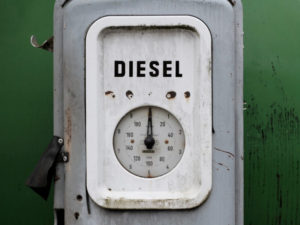Court rules Frankfurt must ban older diesels
Frankfurt is to become the fifth major German city to instate a diesel ban following a court ruling.

The Administrative Court in Wiesbaden has ruled that Frankfurt must ban older diesels
In August, the city had published a brief air quality ban that did not mention diesel bans. Now, the Administrative Court in Wiesbaden has just ruled that the city of Frankfurt must put restrictions on diesel vehicles by February 2019.
It comes four months after the German Federal court outlined that German cities were officially allowed to ban older diesel vehicles from their streets, following an official ruling from Germany’s top administrative court in February, which meant that bans up to and including the Euro 5 standard can be introduced immediately – and are actually required to do so in areas where they are the fastest solution to pollution.
The Wiesbaden court has ordered the introduction of diesel bans across the whole Frankfurt area – not just the inner city – as the only effective tool to bring pollution levels down below legal limits.
According to the ruling, authorities must place restrictions on diesel vehicles up to and including Euro 4 by February 2019, adding restrictions on Euro 5 diesel vehicles by September 2019.
Exemptions from the ban will not be easy to come by, encouraging retrofitting or replacement of older private vehicles. But the judge also stipulated that bans must be paired with other measures, including fewer and more expensive parking spaces in the inner city, and enforced retrofitting or renewal of public bus fleets.
The ruling has been welcomed by environmental lawyers representing ClientEarth and national NGO Deutsche Umwelthilfe (DUH), which have brought cases in 28 towns and cities in total.
ClientEarth lawyer Ugo Taddei said: “Germany’s top court set the direction in February and we are now seeing the domino effect kick in. Courts have now ordered diesel bans in Frankfurt, Düsseldorf, Munich, Stuttgart and Aachen.
“The trend is unmistakeable but the Federal government is still failing to take the lead. It needs to implement a national system to make diesel restrictions work from region to region and order car manufacturers to fix dirty diesel vehicles.
“While Federal ministers are digging in their heels on diesel bans and mooting partial and ineffective solutions to combat dangerous air pollution, people are still being forced to breathe dirty air that will affect them for the rest of their lives. Germany needs to stop playing for time and get on top of its pollution problem. Every delay comes at the expense of people’s health.”

